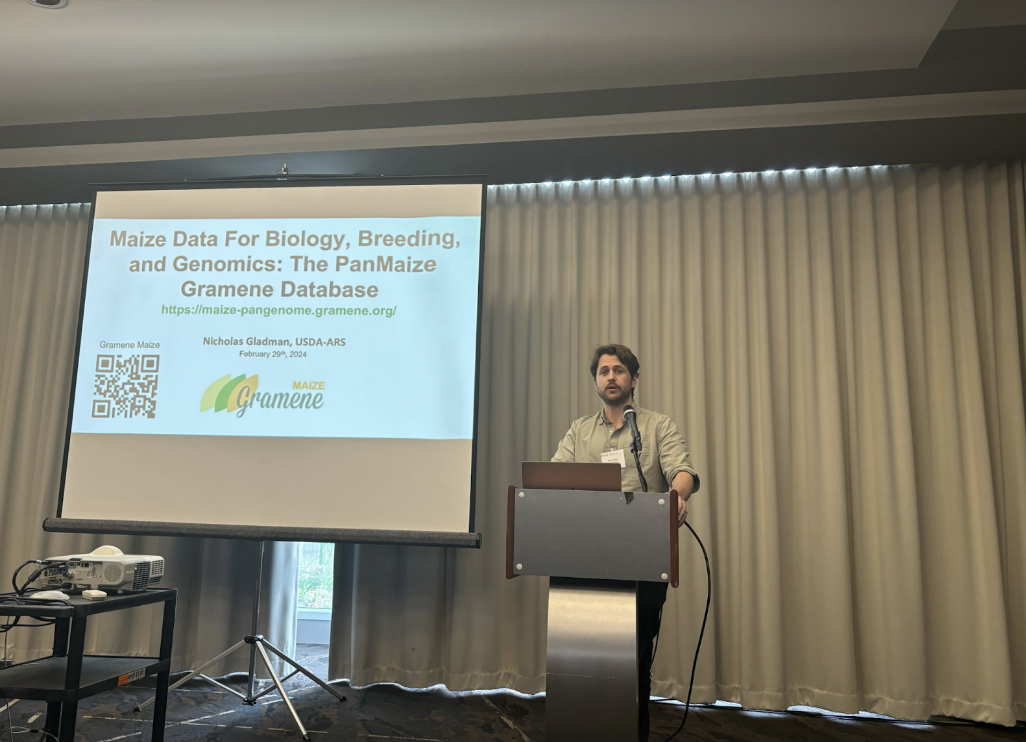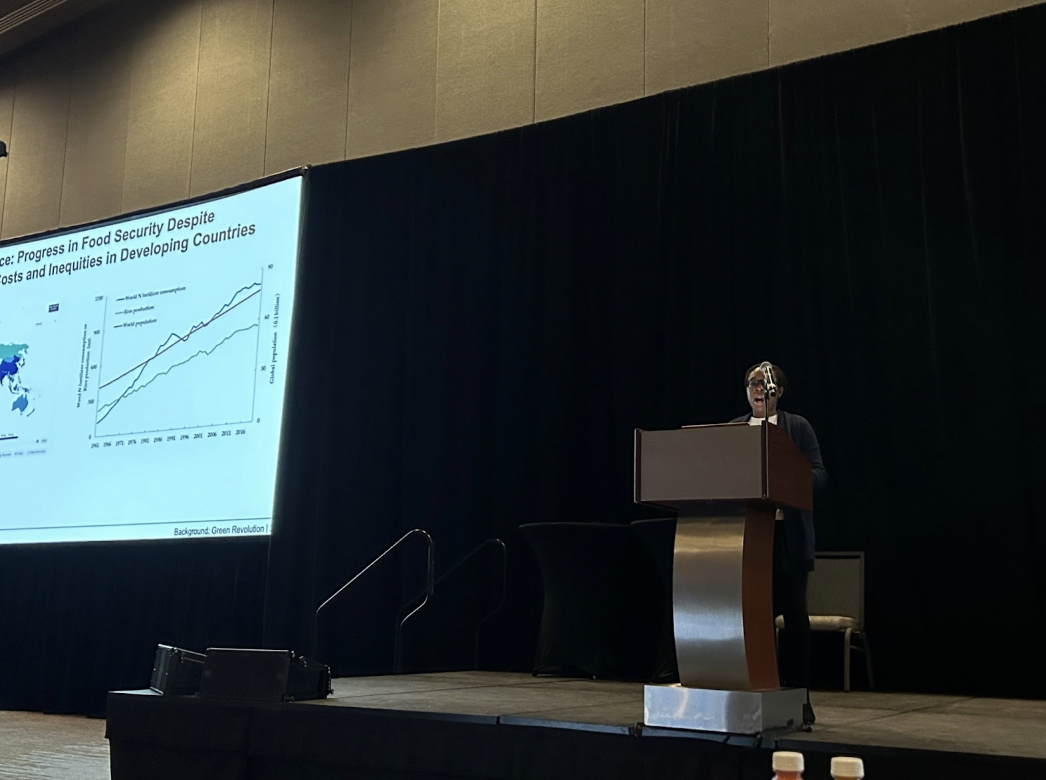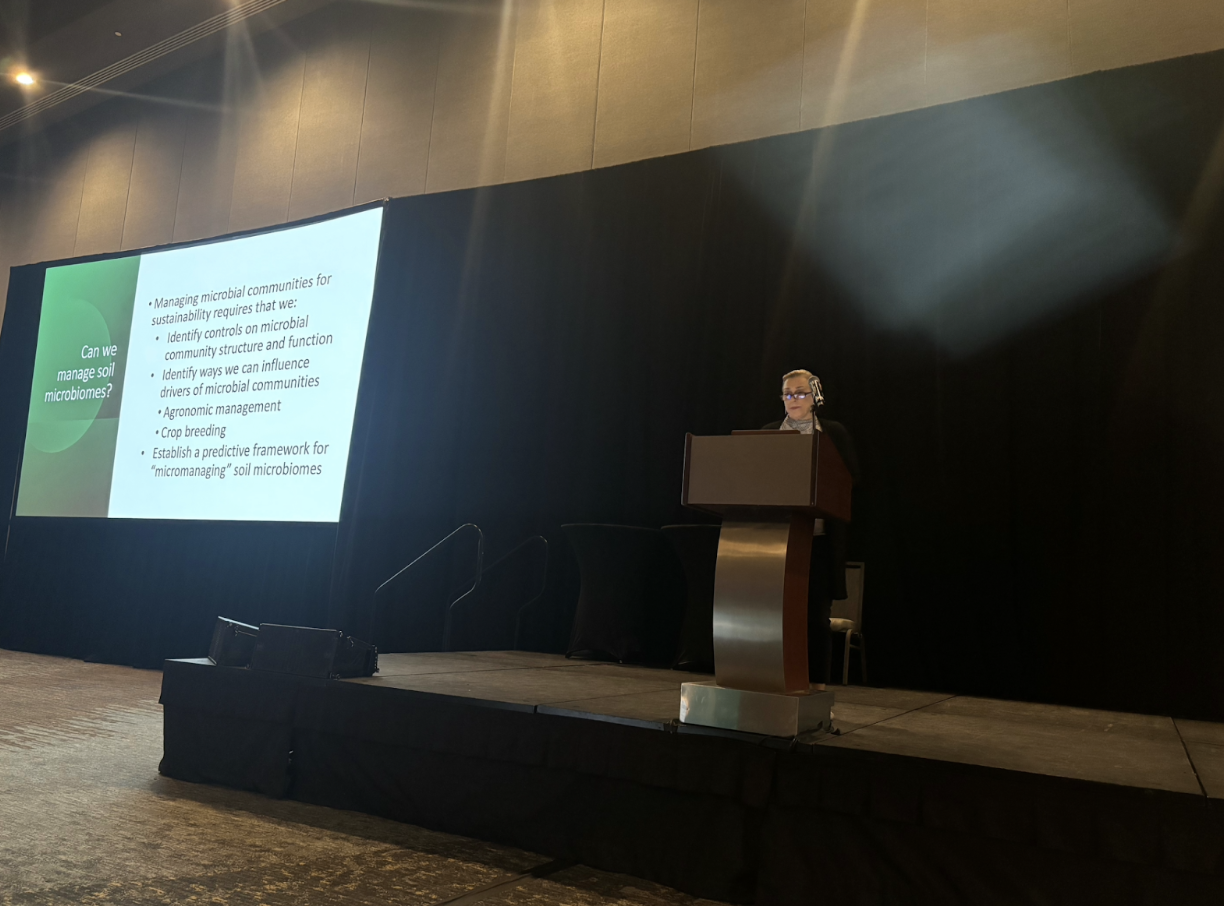Advancing Maize Genetics: Insights from the 66th Annual Meeting
The 66th Annual Maize Genetics Meeting was held from February 29 - March 3, 2024 in Raleigh, North Carolina. The conference focuses on the most current scientific and technical advances in maize genetics.
At the Gramene Workshop, Nicholas Gladman, a USDA scientist from the Ware lab at Cold Spring Harbor Laboratory, delivered a presentation titled “Maize Data for Biology, Breeding, and Genomics: The Panmaize Gramene Database.” He provided an insightful overview of the Gramene Maize database, emphasizing its utility in biological research, breeding, and genomics with a practical, step-by-step tutorial.
Janeen Braynen, also from the Ware Lab, shared her insights on “Decoding Nitrogen Use Efficiency in Maize and Sorghum: Insights from Comparative Gene Regulatory Networks for Sustainable Agriculture.” Her talk focused on the comparative analysis of nitrogen uptake and utilization within the gene regulatory networks of Maize and Sorghum and emphasized the importance of sustainable agricultural practices.
The conference featured notable invited speakers, including Natalia de León, from the University of Wisconsin-Madison, “Plant breeding and the infinitesimal model: cause or consequence,” Terri Long, from North Carolina State University, “From the stars to your table - plants as complex conduits for iron nutrition,” Anna Stepanova, from North Carolina State University, “Leveraging synthetic biology to monitor and control plant hormone activity,” and Peter Balint-Kurti, from the USDA-ARS, “Selected Highlights of Maize Disease Resistance Genetics Research: These Are a Few of my Favorite Things.”

Nick Gladman, Ph.D. gives his talk, “Maize Data for Biology, Breeding, and Genomics: The Panmaize Gramene Database,” during the Gramene workshop. Photo Credit by Janeen Braynen, Ph.D.

Janeen Braynen, Ph.D presents “Decoding nitrogen use efficiency in maize and sorghum: Insights from comparative gene regulatory networks for sustainable agriculture,” during the Nitrogen conundrum session.

Angela Kent, from the University of Illinois gave a wonderful talk on, “Mining ancient genomes for microbiome associated phenotypes for nutrient retention in agroecosystems.” By studying various maize genotypes, Kent’s team found differences in the recruitment of microbial nitrogen-cycling groups, linking these to genetic traits. This suggests the microbial community’s functional profile could be a selectable trait in breeding programs, offering a path to enhanced crop efficiency, sustainability, and environmental protection. Photo Credit by Janeen Braynen, Ph.D.
- aolson's blog
- Log in to post comments
